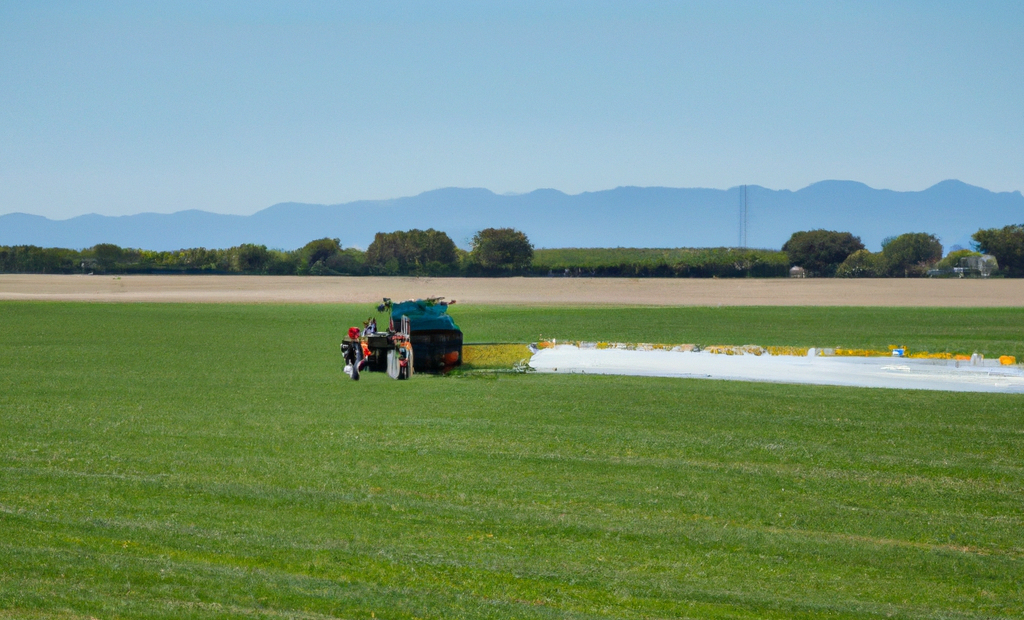The sections highlight the relevance of fertilizers and biofertilizers in the management of crop diseases in organic farming. Biofertilizers, agricultural products based on living organisms, benefit the health of the crop, improve soil quality and prevent diseases. The correct choice and application of these products are essential in any disease management plan. Biofertilizers replace chemical fertilizers, contributing to sustainability and improving soil fertility. They are essential for a more sustainable and environmentally friendly agriculture, strengthening plants against diseases and promoting biodiversity.
In a constantly evolving world, where the demand for food increases day by day, the need to maintain and improve the health of crops is paramount. In this context, management plans for specific crop diseases play a fundamental role. These plans, which often use fertilizers and other agricultural products, seek to prevent and control diseases that threaten the productivity and quality of our crops. However, the agricultural industry is experiencing a shift towards more sustainable practices, such as organic farming and the use of biofertilizers, which promise to offer more environmentally friendly solutions to combat these diseases. This article will explore in depth these different strategies, their effectiveness and their impact on the world of agriculture.
- 1. "The role of fertilizers in management plans for specific crop diseases"
- 2. "Organic farming: A sustainable solution to combat crop diseases"
- 3. "Use of biofertilizers in the management of specific crop diseases"
- 4. "Agricultural products: Essential tools in crop disease management plans"
1. "The role of fertilizers in management plans for specific crop diseases"
Fertilizers play a crucial role in management plans for specific crop diseases, as they provide the necessary nutrients to strengthen plant health and increase their resistance to diseases. Within the framework of organic farming, the use of biofertilizers has become increasingly popular. These are agricultural products that are not only beneficial for the health of the crop, but also for the environment. Biofertilizers improve soil quality and promote a biological balance that can help prevent the spread of plant diseases. Therefore, the correct choice and application of fertilizers is an essential component of any crop disease management plan.
2. "Organic farming: A sustainable solution to combat crop diseases"
Organic farming stands out as a sustainable solution to combat crop diseases, promoting more responsible and environmentally conscious management. Instead of using chemical fertilizers, organic farming opts for biofertilizers and other agricultural products that are friendly to the ecosystem and that not only maintain but improve soil fertility. These ecological practices help maintain a biological balance that naturally prevents and controls the appearance and spread of diseases in crops. Therefore, organic farming is not only a healthier and more environmentally friendly alternative, but it is also an effective crop disease management strategy.
3. "Use of biofertilizers in the management of specific crop diseases"
The use of biofertilizers in the management of specific crop diseases has become an essential strategy for organic farming. These biofertilizers, which are agricultural products based on living organisms, provide nutrients to the soil and enhance plant health, reducing the need for chemical fertilizers and helping to combat various crop diseases. Biofertilizers can also improve plant resistance to disease, which in turn can minimize the use of pesticides and other potentially harmful chemical agents. Therefore, within the framework of a comprehensive crop disease management plan, biofertilizers play a crucial role in promoting more sustainable and environmentally friendly agriculture.
4. "Agricultural products: Essential tools in crop disease management plans"
Agricultural products are essential tools in crop disease management plans. These products, which include fertilizers and biofertilizers, play a crucial role in the nutrition of plants and therefore their resistance to various diseases. Fertilizers, in particular, provide essential nutrients that can strengthen plants and make them more resistant to diseases. Additionally, the use of biofertilizers, an environmentally friendly alternative to chemical fertilizers, can improve soil health and biodiversity, which in turn can help prevent the onset of diseases. Organic farming, which promotes the use of these natural products, is an effective strategy for managing crop diseases.
Managing crop-specific diseases is critical to ensuring the health and productivity of our agricultural systems. Fertilizers play a crucial role in this process, providing plants with the nutrients needed to resist disease and promoting healthy growth. However, it is important to highlight that organic farming emerges as a sustainable solution to combat crop diseases, minimizing environmental impact and preserving biodiversity. In this sense, the use of biofertilizers has been proven effective in the management of specific diseases, providing a safer and more environmentally friendly alternative to synthetic fertilizers. Finally, agricultural products are essential tools in disease management plans, helping farmers apply the most effective strategies and keep their crops healthy and productive. In summary, the integration of these different approaches and tools is key to developing effective, sustainable and environmentally friendly disease management plans.


